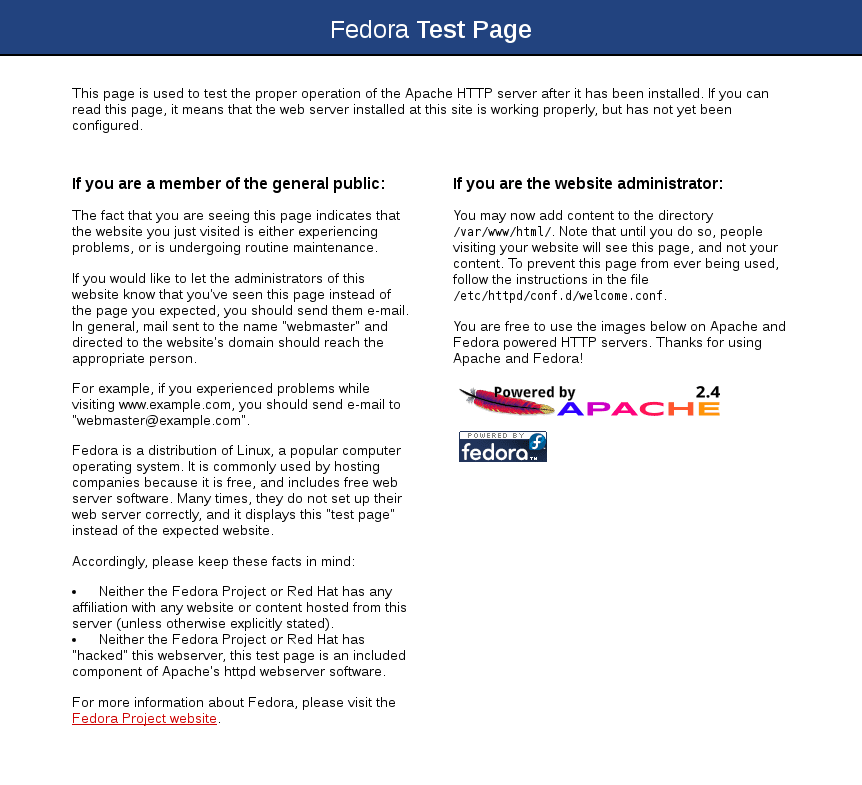Installing Apache and PHP on Fedora/CentOS Systems
Before we begin this tutorial, we first note that newer Fedora releases have now adopted dnf (Dandified Yum) as the default package manager in place of yum.
1) Install the Apache HTTP Server
Login as root
su -
We first fetch the system's packages and update them to their newer versions
dnf update
In Fedora/CentOS systems, the Apache web server can be installed by typing the below command at the terminal
dnf install httpd
Check the version number to verify if it is installed properly
httpd -v

2) Start Apache
The Apache web server can be started by typing the below command into the terminal
service httpd start

But as we see the redirect to /bin/systemctl, we can also start by running
systemctl start httpd
After starting the server, type http://localhost in the URL bar of your web browser. It should display the Apache Test Page on Fedora shown below

The command for restarting Apache is similar to starting it. Just run the command
systemctl restart httpd
and for stopping, run
systemctl stop httpd
3) Install PHP
To install PHP, we run the command
dnf install php
We also install the php-common package, which contains files used by both the php and the php-cli packages.
dnf install php-common
Verify the installation by checking the PHP version
php -v